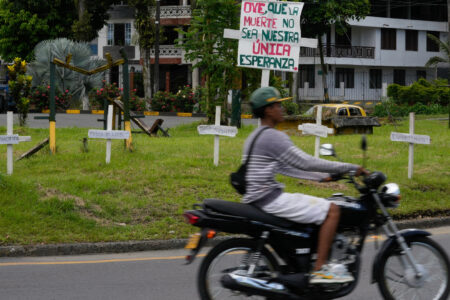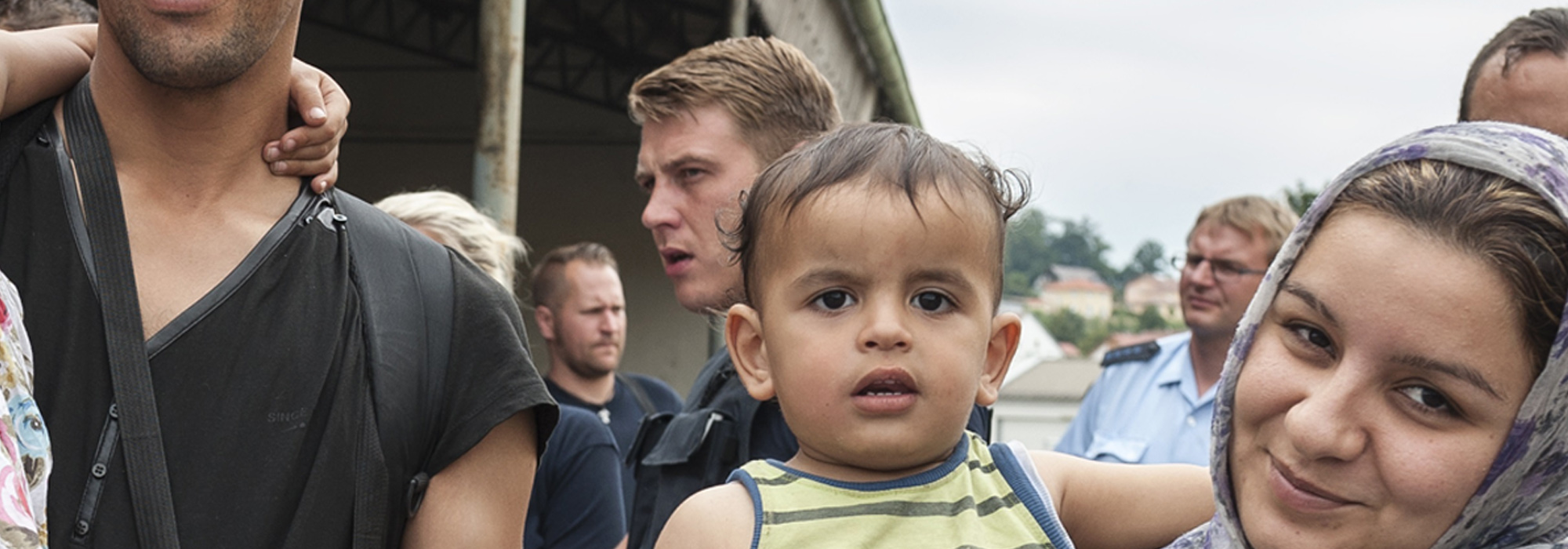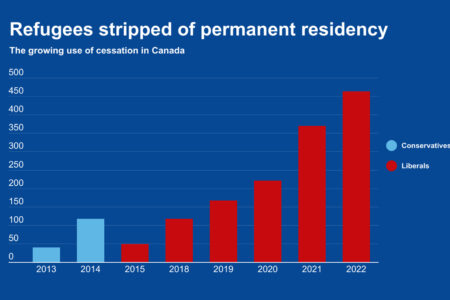
Cast your mind back nine months to the vigorous public policy discussion over the Syrian refugee crisis that suddenly dominated the Canadian election campaign. That heartbreaking photo of little Alan Kurdi on the beach crystallized the question in our minds: what can we do? The ensuing debate was framed around security – Canada had to be careful not to inadvertently bring in terrorists as it provided safe haven to Syrians fleeing the conflict.
But it turns out we were debating the wrong thing.
To be clear, the Liberal government did the right thing, by stepping up to respond to one of the worst humanitarian crises of our time. As Naomi Alboim and Leslie Seidle explore in their Policy Options pieces, Canada has experience with this type of massive movement. We have a history of generous private sponsorship that should make us proud.
Budget 2016 committed $678 million over six years to help with the Syrian refugee movement, but are the foundations of the existing system solid enough?
But what we should have been talking about at the same time was whether our institutions had the capacity to integrate tens of thousands of refugees into our marvellous, diverse national fabric. We should have been asking whether enough money was being spent in the right places. We should have been demanding an analysis of the immigration department’s programs and staffing levels, and asking questions about who was going to coordinate this massive project at the local level.
Budget 2016 committed $678 million over six years to help with the Syrian refugee movement, but are the foundations of the existing system solid enough? Naomi Alboim points out that the type of elaborate network in place during the Indochinese movement 35 years ago is gone, with areas like sponsor support, monitoring and community development having “fallen through the cracks or not consistent.”
There are serious areas of concern for policy-makers. A large proportion of the government-assisted refugees (GARS) speak neither English nor French, and many of them are even illiterate in their mother tongue. Many children haven’t been to school in years. Most of the women have not worked, and many of the men have experience in only manual labour.
Behind the scenes, there are stories of school boards unprepared financially to deal mid-year with a massive influx of students who need special help (See Michèle Vatz Laaroussi’s piece on the importance of school for integration). Where is the child care for mothers who need to take language courses? Are kids under school age getting any sort of language help? Where are the mental health resources? Why is there a waiting period for receiving federal child care benefits?
Those in the settlement sector worry about what happens at the notorious “month 13,” when government assistance for the refugees Ottawa is responsible for dries up. Those refugees can turn to provincial social assistance, and they have to make sure they can hold on to their rental leases. The outcomes for privately sponsored refugees (PSRs) are different from those for GARs, as Laura Eggertson, and Michaela Hynie and Jennifer Hyndman, explore. At least PSRs have an enthusiastic network of Canadians to lean on, who have invested their time and money to make sure that the newcomers become friends and neighbours.
The Senate Human Rights Committee is currently looking at the Syrian refugee moment, and the timing is right for the analysis. They heard from Refugee 613, a grassroots coalition that sprang up just to help channel the outpouring of energy from average citizens, companies and groups in the City of Ottawa. Its indomitable director, Louisa Taylor, explained the frustrations involved in having to act as information clearing house and coordinator of services, where neither the federal nor the provincial governments fulfill such a function. She recounted how difficult it is to get information from Immigration, Refugees and Citizenship Canada, how little coordination there is among official agencies, how some refugees are leaning on the help of only a single overworked settlement officer.
She said diverse groups who really want to help, like the local police force and the Boys and Girls Club, call up her group and ask, “what the heck is going on here?”
“Are we going to be able to take advantage of all this goodwill?” Taylor asked the senators. “If we didn’t grab this opportunity, it would be very sad.”
Gerry Mills of the Immigrant Services Association of Nova Scotia told the committee that there are 200 people on the waiting list for services in the province. She said the mental-health needs are real, and yet she was told by the government that it wouldn’t be funding anything new.
And she echoed Taylor’s concerns about squandered goodwill – she said Nova Scotians anxious to sponsor families have asked whether they can just take over the care of GARs.
Canadians have raised somewhere in the order of $110 million to help refugees through private sponsorship. But the government decided to handle most of the cases itself, meaning that millions of dollars in private money and countless hours of invaluable volunteer time has been left on the table. Jim Estill, the CEO of Guelph-based appliance manufacturer Danby, generously committed last fall to bringing in 50 families, but so far only 10 have arrived.
The government will have to take a closer look the resources it has on the ground, and consider taking a bigger coordination role inside Canadian communities. The burden of bringing the right people and services together shouldn’t rest solely on the shoulders of overworked volunteers and settlement workers. as Aamna Ashraf describes in her Policy Options article, Ontario’s Peel region has recommended the government provide funding especially to help get the most out of the community networks that exist.
Finally, there should be some serious reflection on whether we should continue classifying and dividing up refugees as we have been. If the evidence points to better outcomes for refugees who have private sponsors and at least some sort of links to people in the community, then should we shift the focus away from absolute government sponsorship?
Canada has done an amazing thing by bringing in large numbers of Syrian refugees, but we should make sure we see this national project through properly.
Photo: Jazzmany / Shutterstock.com
This article is part of the Refugee Integration special feature.
Do you have something to say about the article you just read? Be part of the Policy Options discussion, and send in your own submission. Here is a link on how to do it. | Souhaitez-vous réagir à cet article ? Joignez-vous aux débats d’Options politiques et soumettez-nous votre texte en suivant ces directives.









